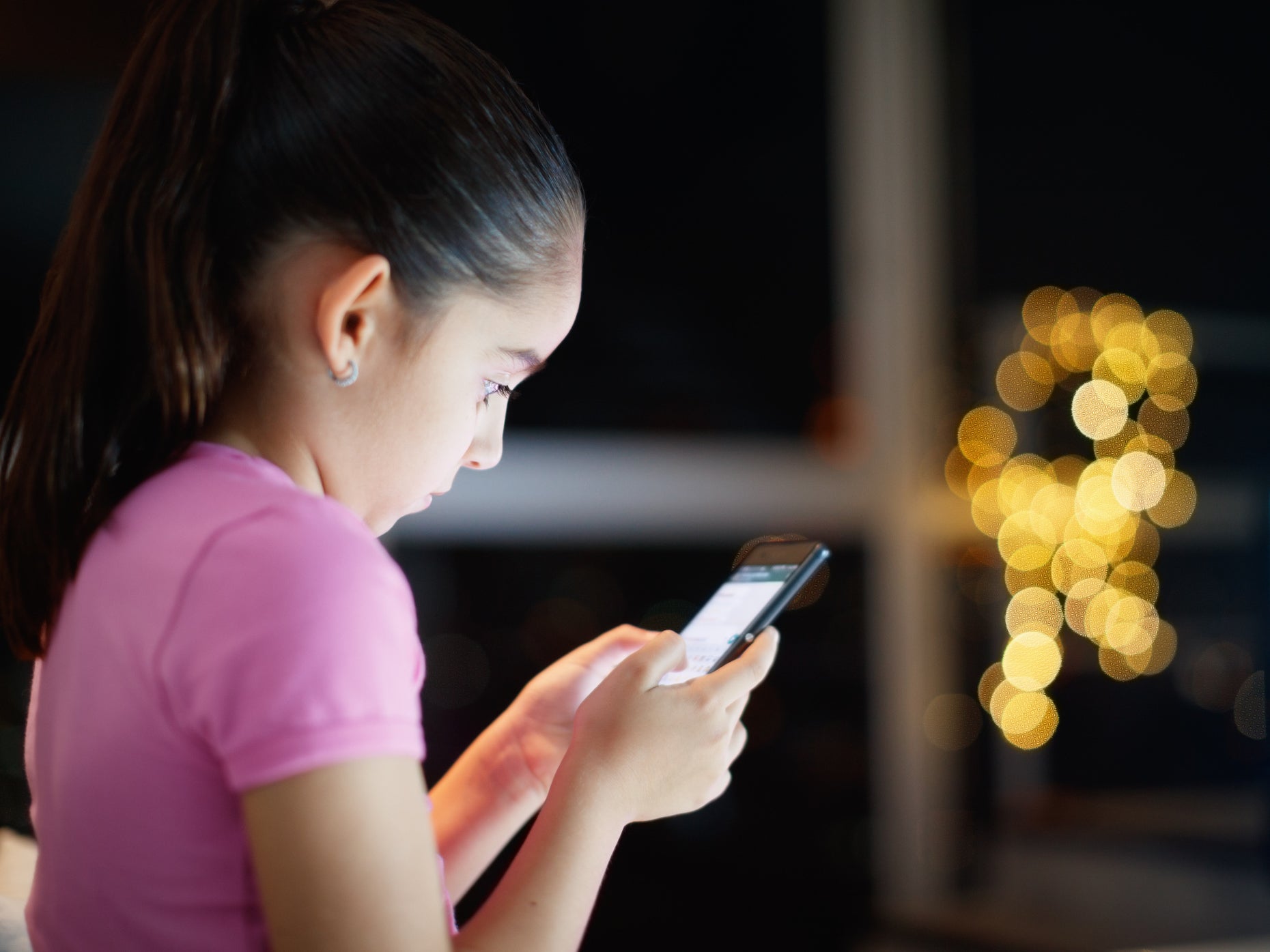More than two hours of daily screen time linked to ‘behavioural and attention problems’ among children
It was recently reported that screen time for children under two had more than doubled in 17 years

Two or more hours of screen time a day could lead to behavioural and attention problems among children, scientists have warned.
Earlier this year, it was reported that screen time for children under the age of two had more than doubled over a 17-year period, increasing from an average of 1.32 hours to 3.05 hours.
While this indicates that many children may spend an excess of three hours a day in front of smartphones, tablets and television screens, doing so could be impacting their attention span.
A recent study, published in scientific journal PLOS One, was conducted by researchers from the University of Alberta in Canada to investigate the impact screen time has on children's behaviour.
Using data from the Canadian Healthy Infant Longitudinal Development (CHILD) study, the scientists assessed information gathered from almost 2,500 five-year-old children and their families.
The parents involved in the study reported the amount of time their children spend in front of a screen everyday.
According to the study's findings, the children spent around 1.5 hours in front of a screen when they were three years old.
The daily recommended amount of time for three-year-olds to spend in front of a screen in Canada is one hour, according to the Canadian Paediatric Society.
By the time they reached the age of five, the children spent an average of 1.4 hours in front of a screen every day.
Over one in 10 (13 per cent) of the five-year-olds surpassed the recommended screen-time of two hours that's advised for the age group in Canada.
In addition to collating information regarding the amount of time children spend in front of screens per day, the researchers also investigated the behavioural patterns of the children participating in the study.
The parents of the children filled out a Child Behaviour Checklist, which is used to identify emotional and behavioural problems in children and teenagers.
According to the researchers, the children who were exposed to more screen time at three and five years old were at greater risk of developing behavioural and attention issues than those who spent less time in front of a screen on a daily basis.
"This association was greater than any other risk factor we assessed, including sleep, parenting stress, and socioeconomic factors," states Sukhpreet Tamana, the study's first author and a postdoctoral fellow in the Department of Pediatrics at the University of Alberta.
According to Piush Mandhane, an associate professor of pediatrics and the university, screen time has a "significant impact" on five-year-old children.
"Current Canadian guidelines call for no more than two hours of screen time a day at that age. But our research suggests that less screen time is even better," the professor adds.

Tamana states that encouraging children to take part in organised activities could lessen the risk of them developing behavioural or attention problems.
"A lot of the things that you do through organised activities are really important for young kids early on," the researcher says.
"It sets the stage for development amongst children. I think in lieu of screen time, it would be beneficial for parents to increase opportunities for other structured activities instead."
The researchers of the study state that more insight is needed regarding whether the type of content children are exposed to on screens have differing effects on their behaviour.
Professor Mandhane adds that the "optimal amount of screen time," for children at a preschool age, according to their research, is between zero and 30 minutes a day.
Join our commenting forum
Join thought-provoking conversations, follow other Independent readers and see their replies
Comments
Bookmark popover
Removed from bookmarks